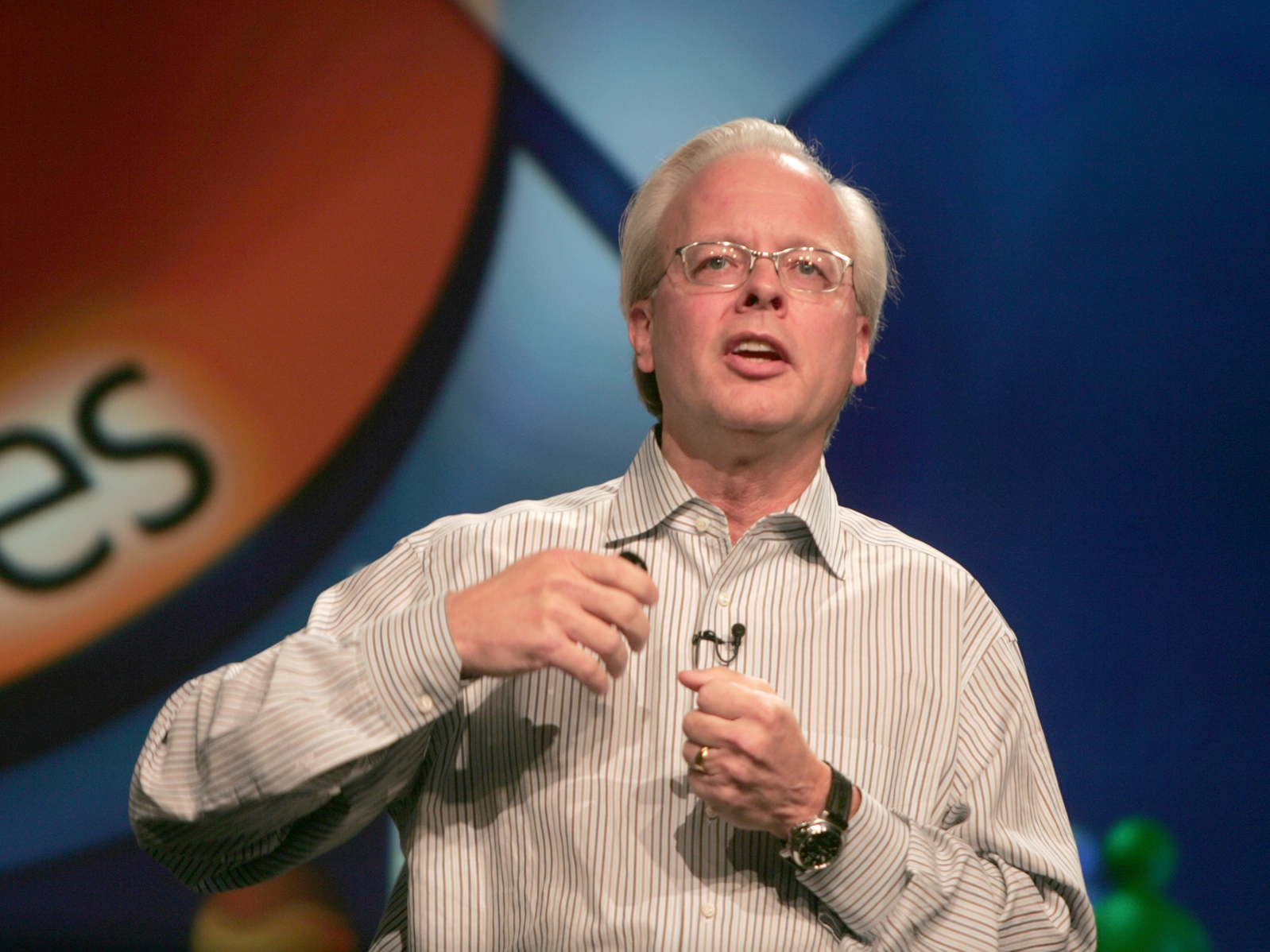Come in Microsoft, the PC's time is up
Even Ray Ozzie reckons the PC era's over

It's easy to lampoon Ray Ozzie's farewell memo to Microsoft - Dan Lyons summarised it as "We suck. I quit. Goodbye." - but the departing Chief Software Architect has made some serious points. Tech is changing, and Microsoft isn't changing fast enough.
It's not the easiest memo to read, because Ozzie never uses one word when he can use 80 - so we stuck it through Microsoft Word's AutoSummarize feature to find the important bits*.
It turns out there are four key points in Ozzie's memo.
First up: "Certain of our competitors' products and their rapid advancement & refinement of new usage scenarios have been quite noteworthy. Our early and clear vision notwithstanding, their execution has surpassed our own in mobile experiences, in the seamless fusion of hardware & software & services, and in social networking & myriad new forms of internet-centric social interaction."
AutoSummarized: Google, Apple and Facebook have kicked our arse.
Second: "Complexity kills. Complexity sucks the life out of users, developers and IT. Complexity makes products difficult to plan, build, test and use. Complexity introduces security challenges. Complexity causes administrator frustration."
AutoSummarized: Windows, eh! What a bloater! (Incidentally, Ozzie said much the same thing ["Complexity kills. It sucks the life out of developers, it makes products difficult to plan… it causes end-user and administrator frustration"] in his Big Exciting Memo of 2005.)
Get daily insight, inspiration and deals in your inbox
Sign up for breaking news, reviews, opinion, top tech deals, and more.
Third: "For each of us who can clearly envision the end-game, the opportunity is to recognize both the inevitability and value inherent in the big shift ahead, and to do what it takes to lead our customers into this new world."
AutoSummarized: Ballmer! Ballmer! Wake up, Ballmer! BALLMER!
And fourth: "Tomorrow's devices [are] relatively simple and fundamentally appliance-like by design, from birth. They're instantly usable, interchangeable, and trivially replaceable without loss. But being appliance-like doesn't mean that they're not also quite capable in terms of storage; rather, it just means that storage has shifted to being more cloud-centric than device-centric. A world of content – both personal and published – is streamed, cached or synchronized with a world of cloud-based continuous services."
AutoSummarized: The PC is yesterday's device.
It's not all negative - far from it - but Ozzie is clearly frustrated: why else would he be quoting his own 2005 call to arms, putting it in italics as if to say "I told you so!"?
For all his praise of Microsoft's talents, there's a message here: Microsoft is too reliant on the old way of doing things, and its rivals are doing to it what MS-DOS did to the mini and mainframe.
When Ozzie says that Microsoft should "once again fearlessly [embrace] that which is technologically inevitable" he's not saying that Microsoft is doing that. He's saying that it must.
* No we didn't.
------------------------------------------------------------------------------------------------------
Writer, broadcaster, musician and kitchen gadget obsessive Carrie Marshall has been writing about tech since 1998, contributing sage advice and odd opinions to all kinds of magazines and websites as well as writing more than a dozen books. Her memoir, Carrie Kills A Man, is on sale now and her next book, about pop music, is out in 2025. She is the singer in Glaswegian rock band Unquiet Mind.
